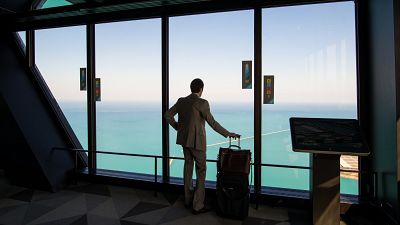Business travel will not return to pre-pandemic levels

We all got out of the habit of travelling during lockdown – but now experts are predicting that business trips will never return to pre-pandemic levels, due to environmental concerns.
A survey by the Institute of Travel Management (ITM) of 100 heads of travel earlier this month found just 28 per cent of respondents expect travel to return to the level of 2019.
Two-thirds thought business travel would not recover to its former level, with predictions that international travel would reach 45 per cent of 2019 volumes in the second half of 2022 – and domestic travel returning to 56 per cent of 2019’s level.
“The financial and, increasingly, the environmental costs of travel can be routinely assessed. Quantifying the human and commercial benefits of bringing people together is yet to be achieved,” he suggests.
Why business trips are no longer a necessity
Paul Miller, CEO and founder of Digital Workplace Group, predicts that post-pandemic business travel will settle at about 25 per cent of the norm in 2019.
Miller’s 100-strong workforce will aim to have just a quarter of meetings face-to-face, which would previously all have been held in person.
“2022 is the year of experimentation. The conditions that allow business travel to be dramatically reduced were already there, but this trigger event has legitimised and normalised that.”
Organisations have now realised that replacing travel with online solutions during 2020 did not lead to a drop in productivity or an inability to build working relationships. Instead, the new approach can help improve work-life balance and produce happier employees in the process, Miller adds.
